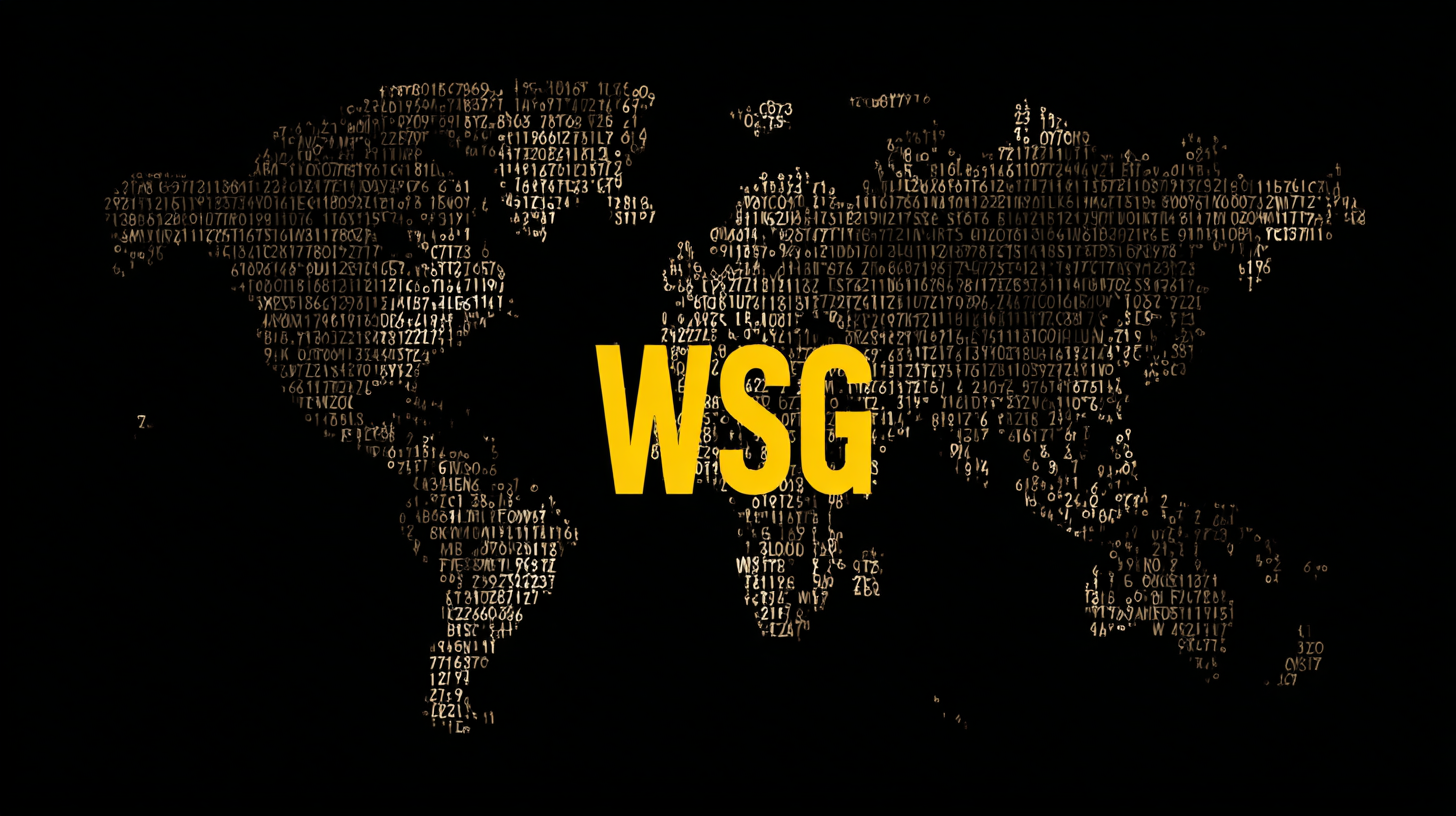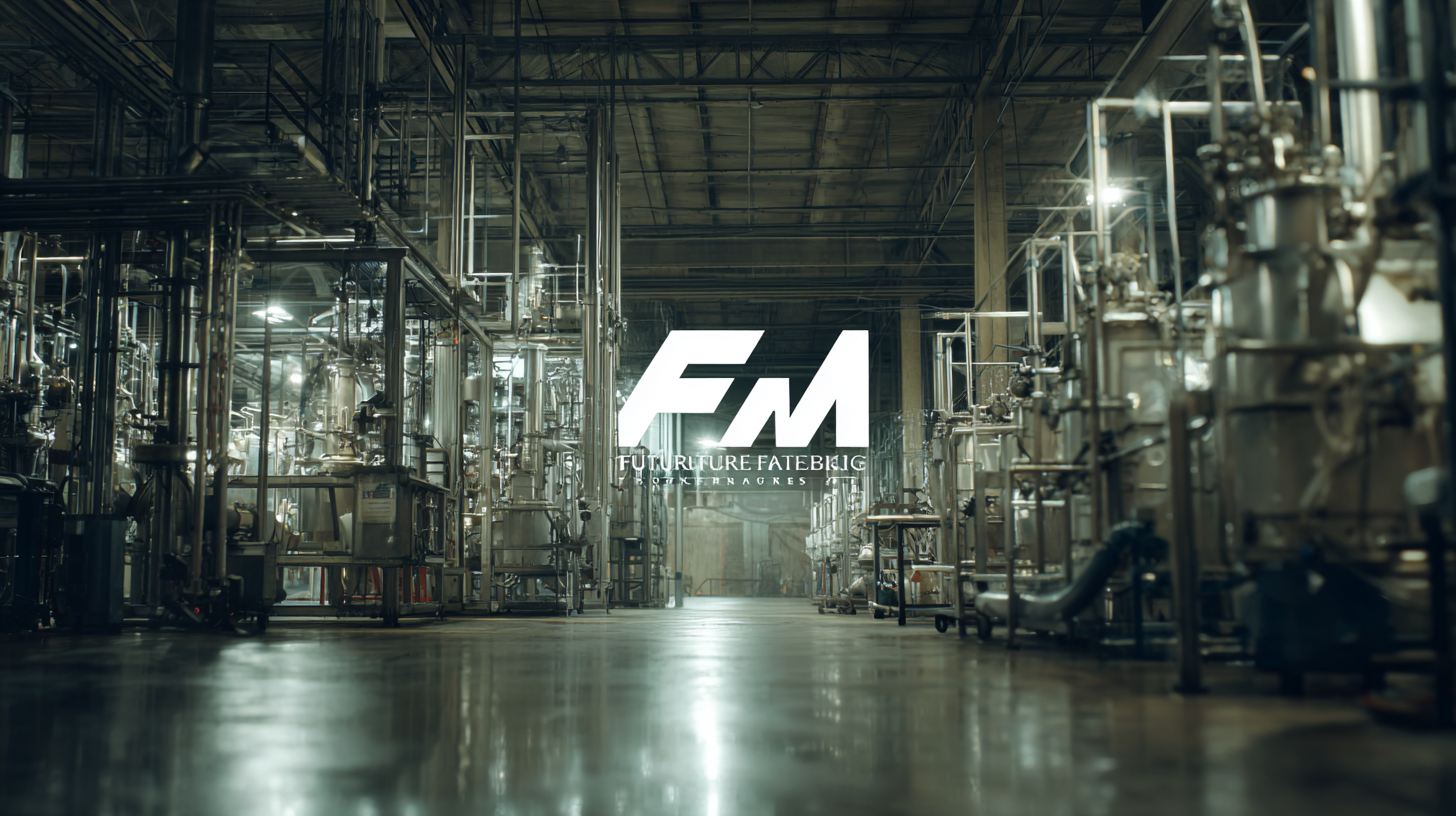The Future of Sourcing from Best Manufacturers Around the World
In today's increasingly globalized market, sourcing from the best manufacturers around the world has become a strategic imperative for businesses seeking to enhance their competitive edge.
According to a recent report by the McKinsey Global Institute, companies that leverage world-class manufacturing capabilities can reduce operational costs by up to 30%, while simultaneously improving product quality and time-to-market.
 China's factories, recognized for their exceptional manufacturing prowess, are at the forefront of this evolution, consistently producing high-quality goods at scale. As organizations explore innovative supply chain strategies, understanding the myriad benefits of partnering with top manufacturers worldwide will be crucial in navigating the complexities of modern production and meeting the ever-growing consumer demands.
In this blog, we will delve into how outstanding manufacturing practices in China and beyond can help businesses thrive in the future.
China's factories, recognized for their exceptional manufacturing prowess, are at the forefront of this evolution, consistently producing high-quality goods at scale. As organizations explore innovative supply chain strategies, understanding the myriad benefits of partnering with top manufacturers worldwide will be crucial in navigating the complexities of modern production and meeting the ever-growing consumer demands.
In this blog, we will delve into how outstanding manufacturing practices in China and beyond can help businesses thrive in the future.
Global Sourcing Trends: Shifting Manufacturing Standards and Practices
As global sourcing evolves, manufacturers are increasingly responding to the growing demand for sustainable practices amid rising consumer awareness of climate issues. This shift is forcing companies to rethink their sourcing strategies, balancing cost efficiency with resilience and environmental responsibility. Regulations aimed at promoting sustainability in international supply chains are proliferating, compelling manufacturers to adapt quickly to meet these requirements. This adaptation not only ensures compliance but also appeals to the environmentally conscious consumer, reinforcing a brand's reputation in a competitive market.
Moreover, the recent geopolitical landscape has instigated brands to diversify their sourcing locations, reducing reliance on traditional powerhouses while exploring new regions. The rise in costs and the emergence of trade policy changes are prompting businesses to remain agile in their procurement strategies. As such, adapting to these shifting standards is crucial for manufacturers aiming to stay competitive. Embracing on-demand manufacturing and leveraging advanced technologies can enhance operational flexibility, reduce waste, and respond effectively to market demands, paving the way for sustainable growth in a complex global marketplace.
Impact of Industry Standards on Supply Chain Efficiency and Quality Control
In today's rapidly evolving manufacturing landscape, industry standards play a crucial role in enhancing supply chain efficiency and quality control. The integration of artificial intelligence is revolutionizing how businesses adhere to these standards, enabling real-time monitoring and assessment. By leveraging AI, companies can optimize their processes, ensuring that they not only meet but exceed regulatory requirements. This transformation not only streamlines production but also enhances product quality, fostering greater trust with consumers.
Moreover, the emphasis on
sustainability within supply chains is becoming increasingly vital. Organizations are now adopting more environmentally-friendly practices, driven by both regulatory pressures and consumer demand. Advanced technologies like
blockchain are enabling greater transparency, allowing for traceability from raw materials to finished products. As businesses implement efficient supplier relationship management strategies, characterized by
collaboration and trust-building, the overall impact on product quality is profound. This strategic approach, combined with AI-driven insights, ensures that manufacturers can navigate the complexities of global sourcing while maintaining high standards of quality and sustainability.
Key Metrics for Evaluating Top Manufacturers in a Competitive Landscape
In today's competitive landscape, evaluating top manufacturers requires a keen understanding of key metrics that drive performance and market success. The McKinsey Technology Trends Outlook 2024 highlights technology as a major player shaping sourcing decisions. It is essential to identify manufacturers who leverage emerging technologies, such as artificial intelligence and data analytics, to optimize production efficiency and enhance product innovation. Companies that prioritize these advancements stand a better chance of meeting the evolving demands of the market.
Equally critical is the integration of diversity, equity, and inclusion (DEI) into the manufacturing evaluation process. According to recent reports, businesses that embrace holistic DEI practices often see enhanced performance management and a more engaged workforce. A diverse supplier base drives creativity and problem-solving, making it a vital metric for assessing a manufacturer's capability to adapt and innovate. By focusing on these essential metrics—technological adeptness and robust DEI practices—companies can make informed sourcing decisions that not only boost operational efficiency but also foster sustainable growth in the ever-changing global market.
The Future of Sourcing from Best Manufacturers Around the World
This chart illustrates key metrics for evaluating top manufacturers in a competitive landscape, focusing on production capacity, quality control, innovation rate, and cost efficiency.
Sustainability and Ethical Responsibilities in Global Sourcing Decisions
In today's global marketplace, sourcing from the best manufacturers is no longer just about cost and efficiency; it increasingly involves a commitment to sustainability and ethical responsibilities. As consumers become more conscientious about the origins of their products, companies face mounting pressure to ensure that their supply chains are environmentally friendly and socially responsible. This shift in mindset requires businesses to evaluate not only the quality of goods but also the practices employed by their manufacturers.
Sourcing decisions must take into account factors such as waste management, labor practices, and carbon footprints. Engaging with manufacturers who prioritize sustainable practices not only enhances brand reputation but also fosters consumer trust. Moreover, by aligning sourcing strategies with ethical standards, companies can contribute to the broader goal of sustainable development, encouraging a healthier planet and supporting fair labor conditions globally. Consequently, the future of sourcing will revolve around forging partnerships that emphasize both profitability and responsible stewardship of resources.
The Future of Sourcing from Best Manufacturers Around the World - Sustainability and Ethical Responsibilities in Global Sourcing Decisions
| Manufacturer Location |
Sourcing Category |
Sustainability Rating |
Ethical Compliance Score |
Years of Partnership |
| Vietnam |
Textiles |
A |
90% |
5 |
| Bangladesh |
Apparel |
B |
85% |
3 |
| India |
Footwear |
A- |
88% |
4 |
| China |
Electronics |
B+ |
80% |
6 |
| Turkey |
Home Goods |
A |
92% |
2 |
Emerging Technologies Shaping the Future of Manufacturing Standards Worldwide
The manufacturing landscape is rapidly transforming, driven by emerging technologies that are reshaping global standards. At the forefront of this evolution is the concept of smart manufacturing, which harnesses interconnected machines and advanced analytics to enhance productivity and energy efficiency. This shift not only streamlines production processes but also fosters adaptability, allowing manufacturers to respond swiftly to market demands.
As we approach 2025, experts predict a 'new normal' where technology will play a pivotal role in manufacturing. This transformation, however, highlights significant challenges, including the potential for increased job displacement due to automation. Amid these disruptions, technologies such as artificial intelligence and autonomous systems are poised to redefine operational paradigms, emphasizing the need for industries to prioritize workforce reskilling.
Furthermore, the push towards sustainability in manufacturing cannot be overlooked. Innovations like hydrogen energy systems and advancements in photovoltaic technology demonstrate the industry’s commitment to mitigating climate change while optimizing energy consumption. The convergence of these technologies not only promises to advance manufacturing standards but also to create a more sustainable and equitable future for global industries.

 English
English Español
Español  Português
Português  русский
русский  Français
Français  日本語
日本語  Deutsch
Deutsch  tiếng Việt
tiếng Việt  Italiano
Italiano  Nederlands
Nederlands  ภาษาไทย
ภาษาไทย  Polski
Polski  한국어
한국어  Svenska
Svenska  magyar
magyar  Malay
Malay  বাংলা ভাষার
বাংলা ভাষার  Dansk
Dansk  Suomi
Suomi  हिन्दी
हिन्दी  Pilipino
Pilipino  Türkçe
Türkçe  Gaeilge
Gaeilge  العربية
العربية  Indonesia
Indonesia  Norsk
Norsk  تمل
تمل  český
český  ελληνικά
ελληνικά  український
український  Javanese
Javanese  فارسی
فارسی  தமிழ்
தமிழ்  తెలుగు
తెలుగు  नेपाली
नेपाली  Burmese
Burmese  български
български  ລາວ
ລາວ  Latine
Latine  Қазақша
Қазақша  Euskal
Euskal  Azərbaycan
Azərbaycan  Slovenský jazyk
Slovenský jazyk  Македонски
Македонски  Lietuvos
Lietuvos  Eesti Keel
Eesti Keel  Română
Română  Slovenski
Slovenski  मराठी
मराठी  Srpski језик
Srpski језик  简体中文
简体中文  Esperanto
Esperanto  Afrikaans
Afrikaans  Català
Català  שפה עברית
שפה עברית  Cymraeg
Cymraeg  Galego
Galego  繁体中文
繁体中文  Latviešu
Latviešu  icelandic
icelandic  ייִדיש
ייִדיש  беларускі
беларускі  Hrvatski
Hrvatski  Kreyòl ayisyen
Kreyòl ayisyen  Shqiptar
Shqiptar  Malti
Malti  lugha ya Kiswahili
lugha ya Kiswahili  አማርኛ
አማርኛ  Bosanski
Bosanski  Frysk
Frysk  ភាសាខ្មែរ
ភាសាខ្មែរ  ქართული
ქართული  ગુજરાતી
ગુજરાતી  Hausa
Hausa  Кыргыз тили
Кыргыз тили  ಕನ್ನಡ
ಕನ್ನಡ  Corsa
Corsa  Kurdî
Kurdî  മലയാളം
മലയാളം  Maori
Maori  Монгол хэл
Монгол хэл  Hmong
Hmong  IsiXhosa
IsiXhosa  Zulu
Zulu  Punjabi
Punjabi  پښتو
پښتو  Chichewa
Chichewa  Samoa
Samoa  Sesotho
Sesotho  සිංහල
සිංහල  Gàidhlig
Gàidhlig  Cebuano
Cebuano  Somali
Somali  Тоҷикӣ
Тоҷикӣ  O'zbek
O'zbek  Hawaiian
Hawaiian  سنڌي
سنڌي  Shinra
Shinra  Հայերեն
Հայերեն  Igbo
Igbo  Sundanese
Sundanese  Lëtzebuergesch
Lëtzebuergesch  Malagasy
Malagasy  Yoruba
Yoruba 

 China's factories, recognized for their exceptional manufacturing prowess, are at the forefront of this evolution, consistently producing high-quality goods at scale. As organizations explore innovative supply chain strategies, understanding the myriad benefits of partnering with top manufacturers worldwide will be crucial in navigating the complexities of modern production and meeting the ever-growing consumer demands.
In this blog, we will delve into how outstanding manufacturing practices in China and beyond can help businesses thrive in the future.
China's factories, recognized for their exceptional manufacturing prowess, are at the forefront of this evolution, consistently producing high-quality goods at scale. As organizations explore innovative supply chain strategies, understanding the myriad benefits of partnering with top manufacturers worldwide will be crucial in navigating the complexities of modern production and meeting the ever-growing consumer demands.
In this blog, we will delve into how outstanding manufacturing practices in China and beyond can help businesses thrive in the future.

